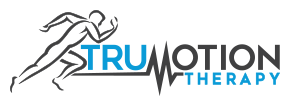Plantar Fasciitis
April 10th, 2020
The ‚ÄúPlantar fascia‚ÄĚ is a fibrous band running from the under surface of your heel to the ball of your foot. ‚ÄúPlantar fasciitis‚ÄĚ is a painful irritation of this tissue caused by chronic over stretching and mild tearing.
Plantar fasciitis affects 10% of the population and is more common in women. Approximately one fourth of patients have the problem in both feet at the same time. People who place excessive stress on their feet by being overweight, standing for long periods, or participating in endurance sports are more likely to develop the condition as well. Shoes without adequate arch supports, including sandals or going barefoot, increase your chances of developing plantar fasciitis. Wearing high-heeled shoes or boots may contribute to the problem.
The most common symptom of plantar fasciitis is pain in the heel or arch when standing up after a period of inactivity, particularly first thing in the morning. When you are sleeping, the arch is in a relaxed or shortened state, and the plantar fascia is able to heal. When you stand up first thing in the morning, you stretch the fascia, once again pulling it away from its attachment on the heel. The condition may progress to the point that you experience pain throughout the day, even while resting. The pain often eases after you walk for a period of time, only to redevelop. You may notice some tenderness when you touch your heel, and you probably have tight calf and hamstring muscles as well.
Plantar fasciitis can be a frustrating condition, often lasting 18 months or more if left untreated. Fortunately, you may recover more quickly with proper treatment. One of the most important things that you can do is to make sure that you are wearing shoes with good arch supports on a consistent basis. A period of rest may be necessary to help you recover. Runners may need to temporarily decrease mileage or switch to less stressful activities like swimming, cycling, or using an AlterG Anti-Gravity Treadmill. A splint or ‚ÄúStrassburg sock‚ÄĚ worn at night will help to keep your plantar fascia in a stretched position while it is healing.
Our Approach to Treating Plantar Fasciitis
Many runners in Charlotte have found plantar fasciitis relief through chiropractic, manual therapy, and corrective exercise here at TruMotion Therapy.  Since each person is unique, an individual approach is taken with each patient.  Listed below is our general approach at providing plantar fasciitis relief.
- Address training errors. Just because something hurts, it doesn’t mean you have to stop training.  We will find the right level of training that will allow you to heal while staying as fit as possible.  Additionally, our AlterG Anti-Gravity Treadmill allows you to run with less impact so you can continue training and rehab quicker.
- Address the joints of the hips and feet. Research has found chiropractic adjustments can help restore motion of tight joints in the hips and feet, which may lead to reduced foot pain.
- Loosen the muscles around the calf and foot. We use techniques like massage, cupping, dry needling and laser therapy to reduce muscle tension, pain, and inflammation.
- Corrective exercise and stretches help restore balance and alignment in the body to help ease pain and prevent it from recurring.
If you live in or around the Charlotte area and are experiencing plantar fasciitis that doesn’t seem to get better, click here to work with our team and begin finding relief.





